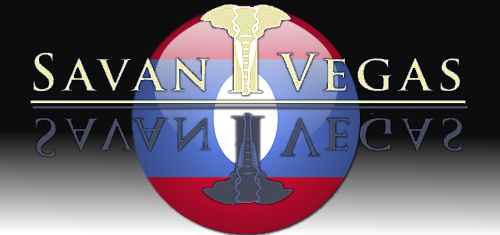 The government of Laos has put the Savan Vegas casino up for sale, but prospective buyers might wish to inquire about the fate of the previous owners.
The government of Laos has put the Savan Vegas casino up for sale, but prospective buyers might wish to inquire about the fate of the previous owners.
On Monday, the Government of the Lao People’s Democratic Republic announced that it was issuing a solicitation of interest inviting companies to bid on the rights to own and operate the Savan Hotel and Entertainment Complex in Savannakhet province, on the country’s border with Thailand. The sale is being conducted by San Marco Capital Partners LLC.
The winning bidder will receive a 50-year concession to operate the complex, as well as the exclusive right to operate full-service casinos with gaming tables in Savannakhet, Khammouane and Bolikhamsay Lao provinces during the 50-year period.
Svaan Vegas features just under 100 gaming tables along with an “extensive” selection of electronic table games and slot machines. The property also features a hotel with 476 rooms and a variety of non-gaming amenities.
The property is currently controlled by Savan Vegas Lao Limited; a state-owned entity. The government seized control of the property from its owners, Macau-based Sanum Investments, in November 2012, claiming that Sanum owed $23m in back taxes and penalties. Sanum had previously lost a slots hall near the Laotian capital of Vientiane under similar circumstances.
An irate Sanum filed a protest with the World Bank’s International Centre for the Settlement of Investment Disputes. In 2013, the World Bank ordered Laos to get its grubby mitts off Sanum’s 80% stake in Savan Vegas. But Laos filed an arbitration action against Sanum the following year, claiming that Sanum had breached the terms of its deed of settlement.
In June 2015, the Marianas Variety newspaper reported that the Laotian government was pursuing an ongoing criminal and tax investigation of Sanum’s Saipan-based parent company Bridge Capital over dealings prior to the government takeover. Specifically, Laos accused Bridge Capital co-owner John Baldwin of making $300k worth of bribes to Laotian officials in order to fend off tax audits of the casino.
Bridge Capital responded to these claims by calling the Laotian government “a communist regime that ranks among the most corrupt in the whole world and one of the lowest in enforcement of the rule of law, individual rights, and the protection of investors.’ Bridge Capital has further claimed that it “does not own Sanum or its parent company and does not do business in Laos. It is being dragged into this as a way of harassing its owners and executives who are also associated with Sanum.”
